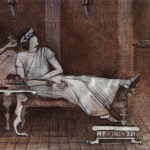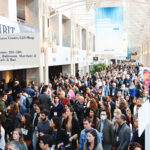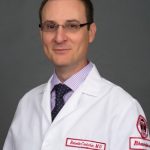
“What was is what will be; what has been done is what will be done.” —Ecclesiastes 1:9
Let me tell you about a series of seemingly unrelated events and how they do, in fact, connect with each other—and with something in the current literature.
Not long ago, my family and I concluded our ceremonial observances of the Jewish high holidays of Rosh Hashannah and Yom Kippur, and the (harvest) festival of Sukkot. These rituals are essential for my identity, for my connection to my religion, and for my spirituality. Between them, I managed to intersperse some relaxation, watching football. I was glad my alma mater, the University of Michigan, was having a better year than last, but disappointed that the University of Florida, where my family lived for 16 years, was struggling. I smile as I recall being in those college towns for the pageantry of fall football.
Recently, I attended the meetings of the Alliance for Academic Internal Medicine, dubbed Academic Internal Medicine Week. I participated in a workshop on managing transitions of leadership positions (which conclusively ended any lingering attachments I may have had to being a program director and department chair). A featured speaker at one of the lunches was Abraham Verghese, MD, professor of the theory and practice of medicine at the Stanford University School of Medicine in Stanford, Calif. His talk about the ritual of the physical examination was enjoyable and provocative.1-3 I have long admired the eloquence of his writing and the relevance of his messages. I had corresponded and spoken with him, unsuccessfully attempting to persuade him to visit us when I was at Saint Barnabas. It was a pleasure to meet him in person.
At home, at the end of the weekend of meetings, I turned on the television and stumbled upon “Fiddler on the Roof” being shown on one of the old movie channels. Who cannot recall Tevye and the singing of “Tradition”?
Finally, a few weeks later was the New York Marathon, an iconic annual event for any runner. I’ve completed it many times over five decades, from the 1970s through a few years ago, but was not entered this year.
And it was then that I came across several publications celebrating the benefits of new electronic technologies for rheumatology, reflecting the changing culture of medical practice.4-8 It was these seemingly unrelated events and experiences that led me to reflect on their fundamental similarities. I was reminded how ubiquitous are symbols, ritual, ceremony, and tradition in our lives—and not only our personal lives, but surely also professional ones. They are so constitutive to us, medically and individually, that our awareness of their power becomes blunted, almost subliminal. We particularly may overlook their meaning to others who are not of our worlds.
Ritual in Rheumatology
Rheumatology achieves a degree of uniqueness by its demands for unsurpassed clinical skills, empathy, intellectual curiosity, humanism, and old-fashioned caring. The “compleat” rheumatologist will appreciate the potency, influence, and symbolic importance of those rituals and ceremonies that reflect the art of our tradition.


